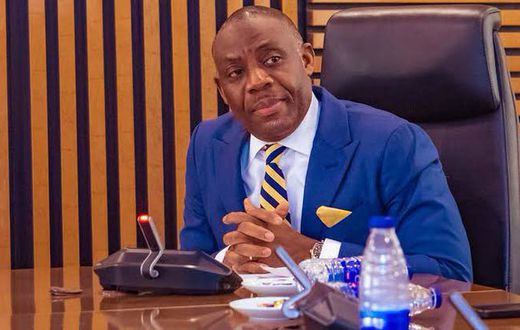The Federal Government on Wednesday took a drastic measure to curb the proliferation of tertiary institutions in the country when it slammed a seven-year moratorium on the establishment of new Federal Government universities, polytechnics, and colleges of education.
Announcing the decision after the Federal Executive Council (FEC) meeting at the Presidential Villa in Abuja, the Federal Government said the decision was arrived at after evaluating the condition of the nation’s existing higher institutions.
It noted that the proliferation of tertiary institutions in the country has stretched the nation’s resources, adding that the already existing ones have remained underutilized, even as it argued that the plummeting numbers have also led to a sharp drop in academic quality.
The minister said that the moratorium also extends to new private polytechnics and colleges of education to prevent further under-enrolment.
This is even as the minister confirmed that FEC approved nine new universities at the meeting, despite the ban.
Alausa, however, defended the Federal Government’s approval of the nine new universities, despite the clampdown, noting that they were private institutions whose applications had been pending for up to six years and had undergone full evaluation by the National Universities Commission (NUC).
Nigeria currently has 72 federal universities, 42 federal polytechnics, and 28 federal colleges of education, in addition to hundreds of state-owned and private tertiary institutions, as well as specialised schools such as colleges of agriculture, health sciences, and nursing.
Out of the 72 federal universities in the country, about 22 were established in the two years of the President Bola Tinubu administration, while he has also approved licences for 11 private universities.
The FG decision followed a presentation by the Minister of Education, Dr. Maruf Olatunji Alausa, who stated while briefing journalists at the end of the meeting that the challenge in Nigeria’s tertiary education system was no longer access but inefficient duplication, poor infrastructure, inadequate staffing, and dwindling enrolment in many existing institutions.
According to the minister, “Several federal universities operate far below capacity, with some having fewer than 2,000 students. In one northern university, there are 1,200 staff serving fewer than 800 students. This is a waste of government resources.”
Explaining further, he disclosed that over 199 universities received fewer than 100 applications through JAMB during last year’s admission season, adding that over 34 tertiary institutions recorded zero applications during the same period.
“Of the 295 polytechnics nationwide, many had fewer than 99 applicants, while 219 colleges of education also posted poor enrolment figures, including 64 with no applications at all,” Alausa revealed.
He emphasised the need to check the current proliferation of tertiary institutions in the country, insisting that such measures will halt the creation of poorly subscribed institutions that produce ill-prepared graduates, eroding the value of Nigerian degrees internationally, and worsening unemployment.
He explained that the moratorium would enable the government to channel resources into upgrading facilities, hiring qualified staff, and expanding the carrying capacity of existing institutions.
“If we want to improve quality and not be a laughing stock globally, the pragmatic step is to pause the establishment of new federal institutions.
“When we assumed office, there were 551 applications for private universities. Many had been stuck due to inefficiencies at the NUC. We deactivated over 350 dormant applications and set new, stricter guidelines. Of the 79 active cases, nine met the criteria and were approved,” Alausa said, adding that billions of naira had already been invested in infrastructure for the approved institutions.
“Mr. President believes fervently in education and has given us the mandate to ensure every Nigerian has access to the highest quality of education comparable to anywhere in the world,” he said.

